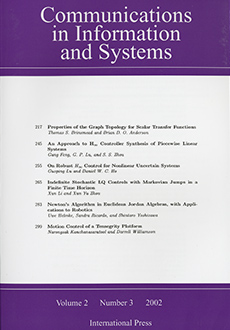Abstract
Computational conformal geometry focuses on developing the computational methodologies on discrete surfaces to discover conformal geometric invariants. In this work, we briefly summarize the recent developments for methods and related applications in computational conformal geometry. There are two major approaches, holomorphic differentials and curvature flow. Holomorphic differential method is a linear method, which is more efficient and robust to triangulations with lower quality. Curvature flow method is nonlinear and requires higher quality triangulations, but it is more flexible. The conformal geometric methods have been broadly applied in many engineering fields, such as computer graphics, vision, geometric modeling and medical imaging. The algorithms are robust for surfaces scanned from real life, general for surfaces with different topologies. The efficiency and efficacy of the algorithms are demonstrated by the experimental results.
Citation
Xianfeng David Gu. Feng Luo. Shing-Tung Yau. "Recent Advances in Computational Conformal Geometry." Commun. Inf. Syst. 9 (2) 163 - 196, 2009.
Information





